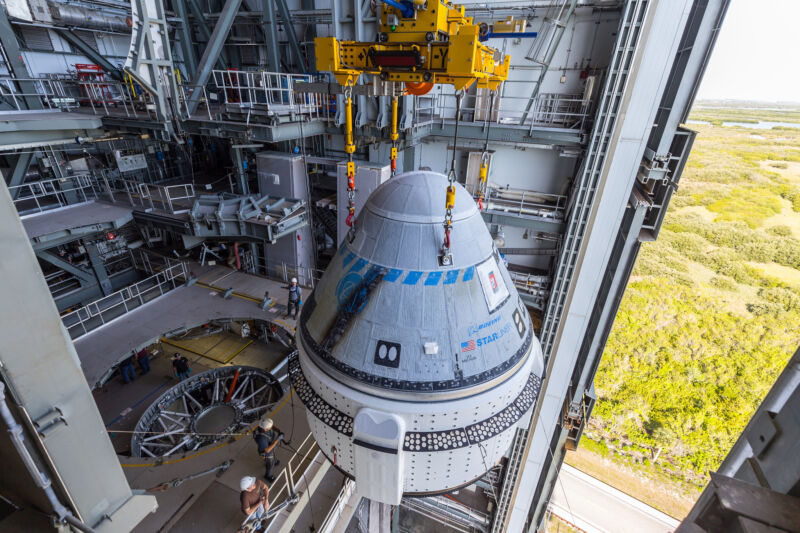The surprise is not that Boeing lost commercial crew but that it finished at all

Enlarge / Boeing's Starliner spacecraft is lifted to be placed atop an Atlas V rocket for its first crewed launch. (credit: United Launch Alliance)
NASA's senior leaders in human spaceflight gathered for a momentous meeting at the agency's headquarters in Washington, DC, almost exactly 10 years ago.
These were the people who, for decades, had developed and flown the Space Shuttle. They oversaw the construction of the International Space Station. Now, with the shuttle's retirement, these princely figures in the human spaceflight community were tasked with selecting a replacement vehicle to send astronauts to the orbiting laboratory.
Boeing was the easy favorite. The majority of engineers and other participants in the meeting argued that Boeing alone should win a contract worth billions of dollars to develop a crew capsule. Only toward the end did a few voices speak up in favor of a second contender, SpaceX. At the meeting's conclusion, NASA's chief of human spaceflight at the time, William Gerstenmaier, decided to hold off on making a final decision.